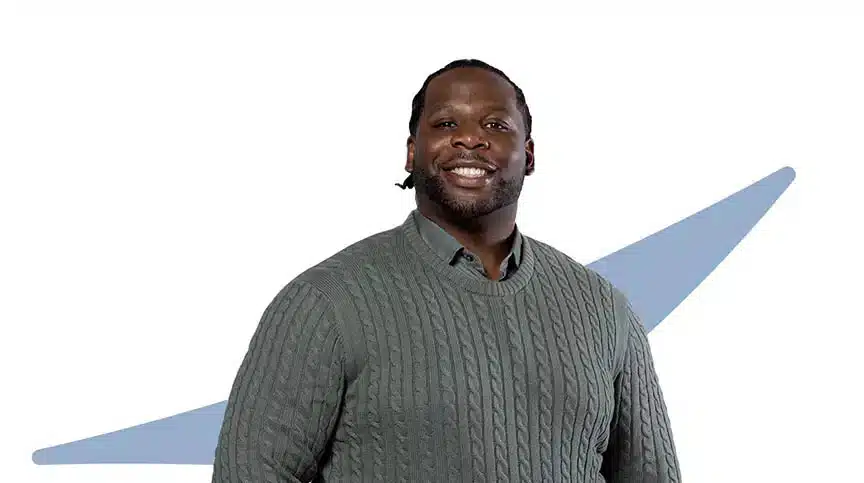Career Longevity Requires Learning Agility
Want a career that lasts a lifetime?
Our research has long shown that the most successful leaders with the longest careers have the key leadership trait of learning agility.
Those who are learning agile and who understand how to have a long career continue to develop on the job for years, and even decades.
If you’re a skilled and agile learner, you outperform your peers. You’re willing to learn from experience and you’re able to apply that learning to perform successfully in new and challenging situations. You learn new information quickly and figure out how to interact effectively with others. You come up with resourceful solutions in circumstances where others have struggled to succeed.
If you have learning agility, you understand that what’s needed to succeed at one level or in one setting doesn’t necessarily translate to the next. And you know that your current skillset is of secondary importance to your ability to learn new knowledge, skills, and behaviors that will equip you to respond to future challenges.
What Traits Do Agile Learners Possess?
People with learning agility who know how to have a long career show many common characteristics and behaviors:
- They’re often looked to, and even relied upon, as innovators. They’re willing, even eager, to challenge the status quo.
- They have high levels of intellectual curiosity. They push, explore, ask questions, seek knowledge and insight.
- They’re energized by challenges. They don’t get overwhelmed; instead, they stay calm, get focused, and work through obstacles.
- They’re very resourceful. If one approach doesn’t work, they try another.
- They’re great at jumping into action — performing — but they also know when to step back.
- They draw on past experiences and intuitively make connections from previous lessons learned.
- They like to live on the edge, seek out new experiences, and undertake diverse challenges.
- They’re not foolhardy — self-aware enough to see limitations but not daunted by not knowing the answers.
- They’re works in progress: restless, self-critical, always striving — compelled to keep challenging themselves and learning.
You can probably guess that these behaviors can be overdone, and they certainly don’t make a person immune to failure. In fact, failure is often part of the story of learning. But agile learners aren’t likely to make the same mistake twice.
When people excel at learning agility, it’s more of a way of life than a specific skill.
People who rate high in learning agility and who are most likely to have a long career are often the “rock stars” in their company or field. They outperform their peers and get promoted more frequently. They learn new information more quickly and are versatile enough to interact effectively with diverse people in diverse contexts. In many ways, being an agile learner and a high-potential leader are synonymous, as learning agility is how you can discern high-potentials from high-professionals.
Over time, if you’re an agile learner, bosses and organizations will recognize you as having “the right stuff” and being high-potential talent. (That’s why it’s often said that great leaders are great learners.) As a result, you’re afforded some of the most sought-after opportunities for leadership and career advancement.
So, what does it take to be an agile learner? And how do you gauge your level of learning agility and the likelihood that you will have a long career?
Am I an Agile Learner?
If you’re unsure whether you’re an agile learner on track for career longevity, consider these questions:
Am I open to new ways of thinking? Do I struggle when doing things differently? Do I like to continuously learn new skills?
Our researchers investigated these questions resulting in some important conclusions for leaders. Learning-agile individuals tend to be more social, creative, focused, and resilient. They are less interested in accommodating others and are not afraid to challenge norms. Specifically, we identified these 5 facets of learning agility:
- Innovating: Agile learners are not afraid to challenge the status quo.
- Performing: Agile learners remain calm in the face of difficulty.
- Reflecting: Agile learners take time to reflect on their experiences.
- Risking: Agile learners purposefully put themselves in challenging situations.
- Defending: Agile learners are simply open to learning and resist the temptation to become defensive in the face of adversity.
Take This Quick Self-Assessment to Gauge Your Learning Agility
To get a good sense of your personal learning agility and whether you’re likely to have a long career, consider your behaviors in the same 5 categories:
| Do I… | Do I… | ||
|---|---|---|---|
| Innovate | Challenge the status quo in an attempt to make improvements? Experiment with new ideas and endeavor to find the best solution to each individual problem? | OR | Try to achieve the best with what I have at my disposal? Choose the most readily available solution and move on to the next challenge? |
| Perform | Pick up on subtle cues to build a better understanding of the problem? Stay calm when faced with a challenge or stressful situation? | OR | Trust my intuition to guide me to a solution? Use stress as energy to get things done more quickly? |
| Reflect | Make time to critically reflect on my experiences? Examine past failures for lessons? | OR | Move quickly from one task to another in order to accomplish more? Put failure quickly behind me in order to focus on the next challenge? |
| Take Risks | Volunteer for roles that are ambiguous, new or otherwise challenging? Take enjoyment from struggling with a challenging problem? | OR | Take on challenges where I know I can be successful? Take enjoyment from managing a well-oiled machine? |
| Defend | Consider my personal role in both successes and failures? Seek feedback because I need it? | OR | Take credit for success and quickly make excuses for failure? Listen to feedback because others want to give it? |
When you read the above statements, which side of the line seems to describe you better? If you identify more with the statements on the left, you may already embody many of the components of learning agility.
If you fall on the right, you’ve got some room for improvement, and you’ll want to follow our tips to increase your learning agility and your likelihood of having a long career.
Learning how to be an agile learner takes practice, but if you can improve your learning agility, then you hold the key for how to have a long career — and a deeply satisfying one.
Ready to Take the Next Step?
Help your leaders become agile learners with a customized learning journey using our research-backed modules. Available leadership topics include Conflict Management, Emotional Intelligence, Innovation Leadership, Learning Agility, Self-Awareness, and more.








